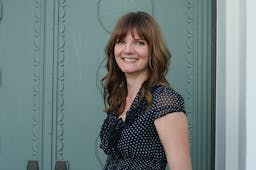I Love Men - Redefining what “masculine” means in our society
Jan 21, 2015
Story
We walked off streets electrically charged with protesters on corners shouting their angst, stationed next to vendors happy to hawk their beaded jewelry amidst the mill of pedestrians. Faces open, closed, tanned, tattooed, angry and laughing surrounded the Cal campus. Berkeley, home away from home.
Not knowing what to expect from “The Men’s Story Project,” my two girlfriends and I chose seats midway through the municipal room on campus, folding chairs set up in front of a makeshift stage, the 1 Giant Leap soundtrack playing from the speakers lining the walls.
It seemed Director Josie Lehrer crafted the night to slowly move us into the concept of baring the soul. She quoted Thoreau, “It takes two people to speak the truth: One to speak, and one to hear.” We had entered wearing our armor, all that shields and protects us from deeper human interaction so we safely make it to our next appointment. As the night began, we shed the armor piece by piece, starting with a story told by a slight man with a gentle, dry voice and a long ponytail. In a humorous poem he described falling in love with a brilliant woman, a woman who changed his life, opened his mind and heart, but whose darker skin tone and different ethnicity caused a rift between him and his prejudiced father.
As we warmed to the idea of men sharing their feelings without the promise of sex after, we were treated to “I Love Men,” a comedic and touching account of a man admitting to platonic, heterosexual friendships with men who mean the world to him.
Sensing we were safe and comfortable, the night moved into more painful, risky territory: the story of a black man being judged by his community of faith for his homosexuality, a transsexual man who told of watching a woman run from him late at night, recognizing her fear in his own when he was a woman, recognizing that with his longed-for masculinity he also gained the threat of violence.
We were given a moment of comic relief in “Drain the Main Vein” as a man told of facing the eternal question, urinal or stall? As a woman for whom group bathroom trips are a given, I had no idea how hard it is for men to unzip in front of another.
We cried with laughter at the sassy style of a Latino gay boy recalling “Girls’ Night Out,” and teaching his sister to dance for her Quinceanera. An older, retired man admitted that when he first moved to San Francisco he wasn’t able to hug a man, how the TV taught him to be a man, like the TV is still teaching. We clapped when he told us to “fuck that teaching box,” though inside I know I wasn’t alone thinking, “but I still need it to watch Lost.”
There was a deep silence as we learned about a man losing his son to gang violence and instead of responding with retaliation, looking for the divinity in all people and creating the reverence movement. We were encouraged to join the movement, which simply means to open ourselves to others, to behold others and not judge them.
That spring night in Berkeley, a dozen men stood on a stage and through poetry, dance and spoken word took a step toward redefining what “masculine” means in our society. Lehrer introduced The Men’s Story Project as a forum to “preserve and pass on traditions, challenge and break traditions and create new traditions.” Lehrer noted that she is not, in fact, a man, and answered her own question: Why, in a man-centric world, should we focus on more men’s stories? “Because patriarchy is harmful to men, too.”
(Read the rest of the post on my , The Butterfly Effect.)




